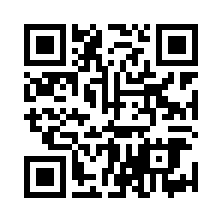UDK 631.354.2
DOI: 10.15507/2658-4123.030.202001.060-075
Selecting a Strategy for Determining the Combine Harvester Parameter Settings
Lyudmila V. Borisova
Head of the Chair of Management and Business Processes of Faculty of Business and Management, Don State Technical University (1 Gagarin Sq., Rostov-on-Don 344000, Russia), D.Sc. (Engineering), Professor, Researcher ID: E-4863-2018, ORCID: https://orcid.org/0000-0001-6611-4594, This email address is being protected from spambots. You need JavaScript enabled to view it.
Inna N. Nurutdinova
Associate Professor of Applied Mathematics Chair, Don State Technical University (1 Gagarin Sq., Rostov-on-Don 344000, Russia), Ph.D. (Physics and Mathematics), Researcher ID: E-3961-2018, ORCID: https://orcid.org/0000-0002-3375-1295, This email address is being protected from spambots. You need JavaScript enabled to view it.
Valeriy P. Dimitrov
Head of the Chair of Quality Management, Don State Technical University (1 Gagarin Sq., Rostov-on-Don 344000, Russia) D.Sc. (Engineering), Professor, ResearcherID: E-4908-2018, ORCID: https://orcid.org/0000-0003-1439-1674, Scopus ID:57195505958, This email address is being protected from spambots. You need JavaScript enabled to view it.
Andrey K. Tugengold
Professor of Robotics Chair, Don State Technical University (1 Gagarin Sq., Rostov-on-Don 344000, Russia), D.Sc. (Engineering), Researcher ID: E-5707-2018, ORCID: https://orcid.org/0000-0003-0551-1486, This email address is being protected from spambots. You need JavaScript enabled to view it.
Introduction.The article deals with adjusting the parameter settings of a combine harvester working bodies. For adjustment of complex hierarchical multilevel systems, the intellectual methods based on fuzzy expert information are used. The incoming quantitative, qualitative and evaluation information is analyzed when adjusting the combine harvester. The different types of uncertainty in considering semantic spaces of external environment factors and regulated parameters of the machine cause the application of logical and linguistic approach and mathematical apparatus of fuzzy logic for determining the optimal initial settings. The complex system of interrelations between parameters, indicators of quality of harvest, and factors of external environment causes the necessity to adjust the parameters of combine working elements in the process of harvesting. This function is performed by the correction unit in the intelligent decision support system. In the present article, the questions of creating a knowledge base for correcting adjustment parameters in cases when there are deviations of values of harvesting quality indicators from normative values are considered in detail.
Materials and Methods. Interrelations between performance indicators and regulated parameters are established by empirical rules obtained through the collection and analysis of expert information. To optimize the mechanism of intellectual information system output and reduce the time of decision making, there is a necessity to establish the relevance of used knowledge base rules. To solve this problem, theoretical and game approaches are used, concepts of the matrix of performance indicators and the matrix of risks of making an inefficient decision are used.
Results. An example of choosing a strategy of searching for an adequate response to the fault of the harvesting indices in the form of “losses of feeble grain with chaff” has been given. The choice of fault response strategies on the basis of Laplace criterion, expectedvalue criterion, and Savage test used for decision-making in “games with nature” has been considered. The method of the decision-making process in the problem under consideration with the application of the mentioned criteria were illustrated, the analysis of the obtained results was carried out.
Discussion and Conclusion. The suggested approach substantially increases performance of the unit of intelligent system updating. It allows structuring the expert knowledge base and establishing an optimal sequence of application of production rules; this provides efficiency of the updating process of the adjustable harvester parameters and also reduces the time for decision-making. This approach can be used while solving the problems of updating technological adjustments in different technical systems and devices.
Keywords: intelligent information system, decision-making, combine harvester, technological adjustment, linguistic variable, membership function
For citation: Borisova L.V., Nurutdinova I.N., Dimitrov V.P., et al. Selecting a Strategy for Determining the Combine Harvester Parameter Settings. Inzhenernyye tekhnologii i sistemy = Engineering Technologies and Systems. 2020; 30(1):60-75. DOI: https://doi.org/10.15507/2658-4123.030.202001.060-075
Contribution of the authors: L. V. Borisova – research of interrelations “adjustable parameters – harvesting quality indices”; I. N. Nurutdinova – development of a mechanism for applying the “games with nature” criteria to the problem of updating adjustable parameters of a grain harvester, obtaining the results of example; V. P. Dimitrov – analysis of subject domain, modeling of fuzzy expert knowledge; A. K. Tugengold − development of the knowledge base.
All authors have read and approved the final manuscript.
Received 20.08.2019; revised 13.11.2019; published online 31.03.2020
REFERENCES
1. Yerokhin S.N., Reshetov A.S. Effect of Technological Adjustments on Grain Losses behind the Thresher of Don-1500 Harvester. Mekhanizatsiya i elektrifikatsiya selskogo khozyaystva = Mechanization and Electrification of Agriculture. 2003; (6):18-19. (In Russ.)
2. Borisova L., Dimitrov V., Nurutdinova I. Intelligent System for Technological Adjustment of the Harvesting Machines Parameters. In: Proceedings of the 2nd International Scientific Conference “Intelligent Information Technologies for Industry” (IITI’17). Advances in Intelligent Systems and Computing. Cham: Springer; 2018. 680:96-105. (In Eng.) DOI: https://doi.org/10.1007/978-3-319-68324-9_11
3. Dimitrov V., Borisova L., Nurutdinova I. Intelligent Support of Grain Harvester Technological Adjustment in the Field. Proceedings of the 3rd International Scientific Conference “Intelligent Information Technologies for Industry” (IITI’18). Advances in Intelligent Systems and Computing. Cham: Springer; 2019. 875:236-245. (In Eng.) DOI: https://doi.org/10.1007/978-3-030-01821-4_25
4. Omid M., Lashgari M., Mobli H., et al. Design of Fuzzy Logic Control System Incorporating Human Expert Knowledge for Combine Harvester. Expert Systems with Applications. 2010; 37(10):7080- 7085. (In Eng.) DOI: https://doi.org/10.1016/j.eswa.2010.03.010
5. Craessaerts G., De Baerdemaeker J., Missotten B., et al. Fuzzy Control of the Cleaning Process on a Combine Harvester. Biosystems Engineering. 2010; 106(2):103-111. (In Eng.) DOI: https://doi.org/10.1016/j.biosystemseng.2009.12.012
6. Borisova L,. Dimitrov V., Nurutdinova I. Algorithm for Assessing Quality of Fuzzy Expert Information. In: Proceedings of 2017 IEEE East-West Design & Test Symposium (EWDTS). Novi Sad; 2017. Pp. 1-4. Available at: http://ieeexplore.ieee.org/document/8110107/ (accessed 12.02.2020). (In Eng.)
7. Vetrov Ye.F., Genkin M.D., Litvin L.M., et al. Optimization of Technological Process on Statistical Data. Mashinovedenie = Mechanical Science. 1986; (5):48-55. (In Russ.)
8. Vetrov Ye.V., Chernyavskaya V.P., Bobrineva G.F., et al. Optimum Control of the Combine Harvester (Electronic “Combine Adviser”). Trudy = Proceedings. 1989; (4):80-85. (In Russ.)
9. Litvin L.M., Zhalkin E.V., Vetrov Ye.F. Generalized Assessment of Zone Performance of Combine Harvesters. Technika v selskom hozyaystve = Machinery in Agriculture. 1989; (5):41-45. (In Russ.)
10. Tsarev Yu.A., Kharkovskiy A.V. Prospects for Using the Electronic Control System in Don and Niva Harvesters. Traktory i selskohozyaystvennyie mashiny = Tractors and Agricultural Machines. 2005; (1):37-38. Available at: http://www.avtomash.ru/gur/2005/200501.htm (accessed 12.02.2020). (In Russ.)
11. Zadeh L.A. Fuzzy Sets. Information and Control. 1965; 8(3):338-353. (In Eng.) DOI: https://doi.org/10.1016/S0019-9958(65)90241-X
12. Zadeh L.A. Knowledge Representation in Fuzzy Logic. An Introduction to Fuzzy Logic Applications in Intelligent Systems. The Springer International Series in Engineering and Computer Science. New York: Springer; 1992. 165:1-27. (In Eng.) DOI: https://doi.org/10.1007/978-1-4615-3640-6_1
13. Borisova L.V., Dimitrov V.P. A Linguistic Approach to Solving of the Problem of Technological Adjustment of Combines. Vestnik Mordovskogo universiteta = Mordovia University Bulletin. 2017; 2(27):178-189. (In Russ.) DOI: https://doi.org/10.15507/0236-2910.027.201702.178-189
14. Borisova L.V., Nurutdinova I.N., Dimitrov V.P. Approach to the Problem of Choice of the Adjustable Harvester Parameter Values Based on Fuzzy Modeling. Vestnik Donskogo gosudarstvennogo tekhnicheskogo universiteta = Vestnik of Don State Technical University. 2015; 15(2):100-107. (In Russ.) DOI: https://doi.org/10.12737/11611
15. Dimitrov V.P., Borisova L.V., Tugengold A.K., et al. Technological Adjustment of Agricultural Machines Based on Fuzzy Logic. Vestnik Mordovskogo universiteta = Mordovia University Bulletin. 2018; 28(2):239-254. (In Russ.) DOI: https://doi.org/10.15507/0236-2910.028.201802.239-254
16. Labsker L.G. A General Pattern of Forming Optimum Criteria in Games with Nature. Vestnik finansovoy akademii = Vestnik of the Finance Academy. 2000; (2):71-78. Available at: http://www.fa.ru/org/div/edition/vestnik/journals/2000%20%E2%84%962.pdf (accessed 12.02.2020). (In Russ.)
17. Yemets O.A., Ustyan N.Yu. Games with Combinatorial Restrictions. Kibernetika i sistemnyy analiz = Cybernetics and Systems Analysis. 2008; 44(4):134-141. Available at: http://dspace.nbuv.gov.ua/bitstream/handle/123456789/44202/11-Yemets.pdf?sequence=1ъ (accessed 12.02.2020). (In Russ.)
18. Klimenko I.S., Plutalov M.A., Сhebotarev G.A. Comparative Analysis of Criteria for Selection Strategies in the “Game with Nature”. Vestnik Rossiyskogo novogo universiteta. Seriya: Slozhnye sistemy: Modeli, analiz i upravlenie = Vestnik of Russian New University. Series: Complex Systems: Models, Analysis, Management. 2015; 9(1):55-59. Available at: https://clck.ru/MCMpV (accessed 12.02.2020). (In Russ.)
19. Klimenko I.S., Plutalov M.A., Сhebotarev G.A. To the Evaluation of Optimism Criterions for Selection of Strategies in the “Game with Nature”. 2015; 10(2):19-23. Available at: https://clck.ru/MCMvw (accessed 12.02.2020). (In Russ.)
20. Borisova L.V., Nurutdinova I.N., Dimitrov V.P. On Game-Theory Approach to Process Machine Adjustment Problems. Vestnik Donskogo gosudarstvennogo tekhnicheskogo universiteta = Vestnik of Don State Technical University. 2013; 13(5-6):68-76. Available at: https://vestnik.donstu.ru/jour/article/view/418/418 (accessed: 12.02.2020). (In Russ.)
21. Gorelik V.A., Zolotova T.V. Risk Management in Games with Nature Based on Wald and Savage Crunch Criteria. Modelirovanie, dekompozitsiya i optimizatsiya slozhnykh dinamicheskikh protsessov = Modeling, Decomposition and Optimization of Complex Dynamic Processes. 2008; 23(1):99-114. (In Russ.)
22. Labsker L.G., Aybazova S.Kh. Optimization of Costs in the Transport Aspect of the Logistics System Based on the Synthetic Hurwitz Criterion. Upravlenie riskom = Risk Management. 2013; (2):52-72. Available at: http://ankil.info/WordPress/wp-content/uploads/2015/04/УР_2013_2-с-обложкой.pdf (accessed 12.02.2020). (In Russ.)
23. Malyshev V.V., Piyavskiy B.S., Piyavskiy S.A. The Method of Decision-Making in a Variety of Ways of Taking into Account Uncertainty. Izvestiya Rossiyskoy akademii nauk. Teoriya i sistemy upravleniya = Bulletin of the Russian Academy of Sciences. Theory and Control Systems. 2010; (1):46-61. (In Russ.)
24. Orlovsky S.A. Decision-Making with a Fuzzy Preference Relation. Fuzzy Sets and Systems. 1978; 1(3):155-167. (In Eng.) DOI: https://doi.org/10.1016/0165-0114(78)90001-5
25. Sengupta K. Fuzzy Preference and Orlovsky Choice Procedure. Fuzzy Sets and System. 1998; 93(2):231-234. (In Eng.) DOI: https://doi.org/10.1016/S0165-0114(96)00079-6

This work is licensed under a Creative Commons Attribution 4.0 License.

















